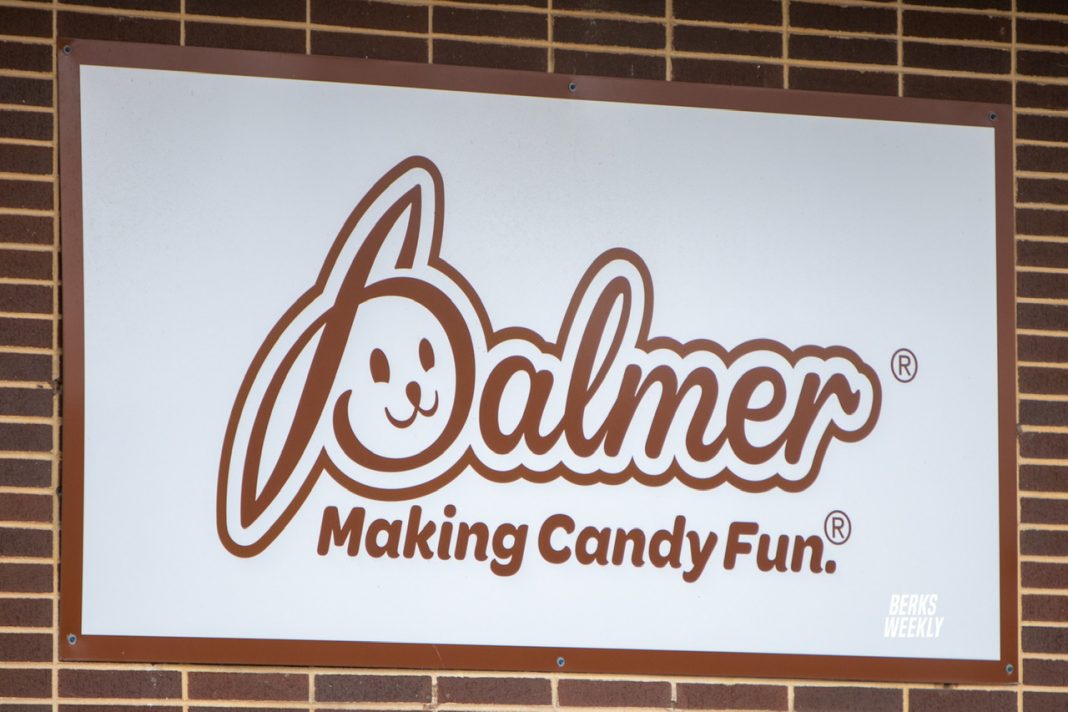R.M. Palmer released a statement Friday responding to the U.S. Department of Labor’s press release Thursday that said the company failed to evacuate employees after some reported smelling gas before the March 2023 explosion that killed seven workers at the company’s West Reading facility.
On Thursday, The department’s Occupational Safety and Health Administration stated it opened an investigation and learned that R.M. Palmer Co. did not remove workers from the manufacturing plant despite workers’ concerns about what OSHA later determined was a natural gas leak.
In response, the company released the following public statement: R.M. Palmer is still mourning the tragic deaths and injuries to its employees from the events of last March 24. Our thoughts and prayers remain with those who were injured and the families of those were killed.
Shortly after the explosion R.M. Palmer was asked by the National Transportation Safety Board to assist as a “party” to its investigation of the accident. We have been actively participating in the NTSB investigation and also assisting state and federal agencies, including the Occupational Safety and Health Administration, in their investigations.
Federal regulations governing the NTSB investigation prohibit us from commenting substantively on the investigation, including the recently released OSHA findings, until the NTSB issues its findings, likely sometime next year. In the meantime, we can, however, assure our employees and the community that R.M. Palmer does not agree that it has violated any provision of OSHA’s workplace standards.
We also note that the July 19, 2023 NTSB Investigative Update concerning its investigation advises that:
After the accident, the NTSB investigation found that natural gas was leaking from a DuPont service tee under a public road less than 2 feet from underground piping that ran between our headquarters building and the building the ultimately exploded. Analysis by the NTSB Materials Laboratory found a longitudinal crack in this DuPont service tee (right). This leaking DuPont service tee was installed in 1982. The Pipeline and Hazardous Materials Safety Administration added the type of service tee that was leaking to their list of pipe materials with “poor performance histories relative to brittle-like cracking” in 2007. In 2021, UGI exposed and retired the service line that was connected to this DuPont service tee when they relocated the natural gas meter from the basement to the exterior of the building that ultimately exploded. After the service line was retired, however, the 1982 DuPont service tee remained connected to the natural gas system, pressurized at full system pressure. As part of the meter relocation project, UGI installed a new service tee and a new service line. A small leak was also found in this newly installed service. www.ntsb.gov/investigations/Pages/PLD23LR002.aspx
The July 19, 2023, NTSB Investigative Update contains no reference to any natural gas leak inside any Palmer building.
R.M. Palmer continues to cooperate in the NTSB’s investigation. In the meantime, R.M. Palmer intends vigorously to contest OSHA’s citations, which it believes are legally and factually unsupported.
We have always put the safety of our employees and community first. It is our number one priority, and we are committed to providing a safe working environment.
R.M. Palmer released a second statement Friday evening:
The statement by OSHA’s Area Director was inflammatory, callous, and irresponsible.
RM Palmer stands by its safety program and policies and has already contested the OSHA citations in this matter. The Company disputes each of the citations and contends that the agency had no basis to issue these citations as stated.
The OSHA citations are predicated upon a “leak” inside of a Palmer building. The National Transportation Safety Board’s July 19, 2023, Investigative Update contains no reference to any natural gas leak inside any Palmer building (click here). It does identify leaks in two natural gas main service tees under a public street outside the building.
OSHA in this case has issued a “general duty clause” violation that is not specific to evacuation procedures. OSHA has no evacuation procedure specific to a natural gas explosion hazard.
Palmer’s fire evacuation procedures would have sent our many employees from both buildings to a muster point on a sidewalk across the street from the buildings or in a parking lot behind another building. Until the NTSB’s investigation is complete, there is simply no basis to evaluate OSHA’s statement that an evacuation would have prevented the seven tragic deaths that occurred.
RM Palmer will continue to participate in the ongoing NTSB investigation and eagerly anticipates its determination of causation.
RM Palmer has always put the safety of its employees and community first, and is committed to providing a safe working environment. Along those lines, RM Palmer plans to work with the NTSB and lobbyist to develop new OSHA regulations to assist employers in implementing the best strategies during unforeseen natural gas releases.


